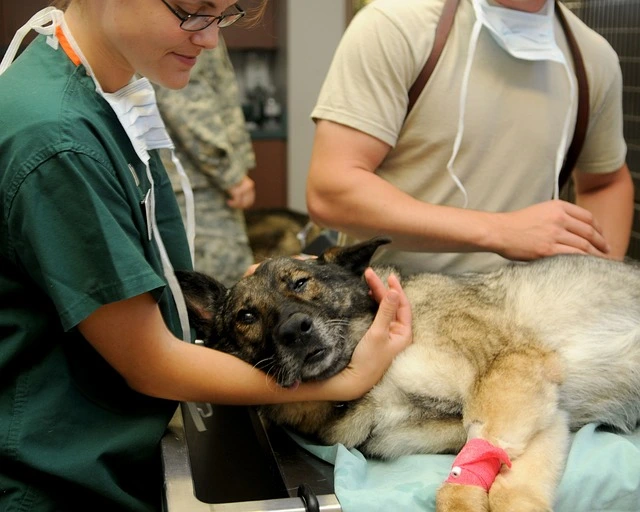The strategies that practices should use to maximize depreciation and healthcare deductions for veterinary equipment.
Animal care in the world of veterinary medicine is full of compassion, specialty, and commitment. However, running day-to-day operations providing quality health care to animals, the vets are tasked at the same time with navigating through very complex taxation laws. This guide to tax planning covers all aspects of equipment depreciation, the use of health care deductions, and the management of operations costs to ensure that the good health of a veterinary practice is synonymous with quality patient care.
Equipment Depreciation: Using multiple approaches to incur costs and minimize taxable income.
Vet practices use different types of equipment. These range from exam instruments to modern diagnostic machines. Equipment depreciation is an important consideration because it affects taxes on investment assets that could amount to substantial sums.
Understanding Depreciation Methods: Accelerated Depreciation for Veterinary Equipment
It enables to spread of the costs of such assets within a certain period instead of deducting all in one year. Such an arrangement would enable a reduction of taxable revenues in the years immediately after acquiring equipment.
MACRS is widely applied to determine the depreciation of veterinary equipment. It allows accelerated depreciation on business equipment. The greater expense is allowed up front as it is used over time.
Leveraging Section 179 Deduction: Immediate Duty-free on Qualifying Equipment.
Section 179 gives a business allowance for buying any qualifying equipment or software that fully can be deducted in a single tax year. The government also can earn massive tax savings in this case.
Dental X-ray machines and surgical instruments are examples of qualified equipment that can be claimed under Section 179 deduction.
Healthcare Deductions: Improving benefits in employee-provided healthcare.
Many vet practices have extended health care benefits for their employees that include medical, dental, and vision insurance. These benefits would also be of importance to employees though with some tax implications on the practice.
Employee Healthcare Expenses: Maximizing Deductions for Employee Benefits
The government allows veterinary practices to offset the expenditure for giving their employees healthcare services. These programs act as vehicles for income deferrals of employees in which employees also enjoy reduced taxes on their payroll.
Vet practices should therefore scrutinize a healthcare benefits plan to ensure its compliance with regulations for health care deduction. Practices should consult with a tax advisor to determine which expenses are deductible.
Pet Care Supplies: Identifying Deductible Expenses
The other category includes pet care supplies and medications that are used in veterinary services, which veterinary practices can also deduct. The expenditure could be on vaccines, drugs, bandages, and surgical instruments.
A veterinary practice should ensure that it maintains accurate records on pet care supplies and medication for supporting tax deduction claims.
Operational Expenses: Managing Costs and Optimizing Deductions
Such operational costs are experienced by vet practices, for instance, rent, electricity, marketing, and ads, among others. Management must understand the tax implications of such expenses to maximize deductions.
Office Space Deductions: using deductions involving clinic overhead costs
Like office expenses of any other veterinary practice, they pay for its rent, electric bill, maintenance, and property tax. The costs are usually treated as ordinary and necessary or as business expenses.
These practices should be documented explicitly and correctly categorized to satisfy the IRS requirements.
Marketing and Advertising: Expanding Reach and Tax Savings
These practices often involve marketing advertisements to create awareness among different clientele to gain a competitive edge over other veterinary institutions. Website design, social media campaigns, and advertising are the most common and therefore deductible expenses in this category.
The practice must keep the exact records of its marketing and advertising budget to prove the deductibility of those costs as well as show the efficiency of marketing.
Telemedicine and Technological Investments: Embracing Innovation and Tax Benefits
Telemedicine is increasingly adopted by the vet world to improve patients’ services and boost market growth. It is important to note that such investments come with tax implications that need understanding.
Telemedicine Deductions: Improving healthcare for patients and tax relief.
The technology called telemedicine has become a useful resource that provides veterinary practices with an opportunity to conduct remote consultations and monitor patients. Telemedicine investment expenses usually include video conferencing software, a secure messaging platform, and specialized items.
Tax advisors should, therefore, be consulted before making any deductions on telemedicine practices. Consider utilizing marketplaces like IfindTaxPro. You can post your project and find the right tax specialist for you.
Technology Upgrades: Modernizing Operations and Tax Savings
Technology upgrades include electronic medical records, diagnostic equipment, and practice management systems that increase efficiencies, patient care and even offer beneficial tax incentives.
Practices need to weigh in on the prospective tax savings attributable to technology changes and explore how much they will realize in the future by making these acquisitions.
Compliance and Record-Keeping: Ensuring financial integrity and supporting deductions.
Compliance with tax laws and proper record-keeping an essential facets for effective tax planning in veterinary practices.
Tax Compliance Standards: Adhering to Specific Regulations
Tax laws apply differently for veterinary practices since they are organized in different entities and engage in specific economic activity. They include timely submission of tax returns, correct reporting of income and expenditures as well as keeping appropriate records.
Maintaining Accurate Records: Substantiating Expenses and Deductions
Veterinary practices need to keep track of their purchase record for equipment, depreciation, health care expenses, etc. to justify any deduction they have made for tax purposes. These comprise invoices, receipts, and contracts among other records.
A veterinary tax advisor will be able to give useful information on the rules and regulations applicable, proper bookkeeping, and particular needs of practices.
Through compliance with tax regulations and proper record-keeping, veterinary practice will move seamlessly in the tax arena. They can attain financial health, profitability, and good services to patients.








